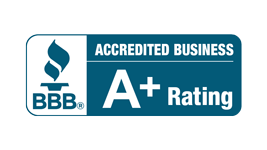Need a Fresh Start?
Life doesn’t always go according to plan. Unexpected medical bills, job loss, divorce, or overwhelming debt can leave even the most responsible individuals feeling trapped and hopeless. But here’s the truth: financial setbacks don’t define you. They can be the very start of something better. More than a quarter of US adults are struggling financially. [1]
Finding a second financial chance isn’t just possible; it’s closer than you think. Whether you’re considering bankruptcy, rebuilding credit, or simply trying to get back on track, there are real, proven steps you can take to reclaim your future.
Everyone deserves a clean slate, especially when life throws unexpected challenges your way. Whether you’re facing mounting debt or just struggling to make ends meet, understanding how you got here is the first step toward building a better financial future.
Common Causes of Financial Crisis
Financial struggles can happen to anyone. Job loss, medical emergencies, divorce, or simply accumulating debt over time can leave even the most responsible people overwhelmed. These events often come unexpectedly, making it difficult to stay afloat.
The Emotional Toll of Debt
Debt isn’t just a financial issue; it affects your mental health, too. Constant stress, anxiety, and shame can weigh heavily on your day-to-day life, relationships, and confidence. It’s exhausting, and it doesn’t get better by ignoring it.
Why Ignoring Debt Makes It Worse
Avoiding the problem only allows it to grow. Interest builds, late fees add up, and creditors may take legal action. The longer you wait, the fewer options you may have. Taking action now is the first step toward relief and a real financial second chance.

Exploring Your Options for Relief
Getting a second chance starts with understanding the solutions available. No matter how overwhelming your financial situation feels, there are real, legal, and manageable paths to recovery. Here are some of the most effective options:
1. Bankruptcy – A Legal Fresh Start
Bankruptcy exists to protect people who’ve hit a financial wall. It stops creditors in their tracks and gives you breathing room to reorganize or eliminate debt. The most common types include:
- Chapter 7 Bankruptcy: Often called “liquidation bankruptcy,” it wipes out most unsecured debts like credit cards, medical bills, and personal loans. It’s usually for people with limited income and few assets.
- Chapter 13 Bankruptcy: This allows you to keep your property and pay back debt over 3–5 years through a court-approved plan. It’s ideal if you have regular income but have fallen behind on payments.
Bankruptcy is not the end; it’s a new beginning, backed by federal law, to help you move forward with confidence.
2. Debt Consolidation or Settlement
If you’re not quite ready for bankruptcy, debt consolidation or settlement may offer a workable alternative:
- Debt Consolidation involves combining multiple debts into a single monthly payment, often with a lower interest rate.
- Debt Settlement means negotiating with creditors to pay less than you owe, typically in a lump sum.
These methods require careful planning and, ideally, professional guidance to avoid making your situation worse.

3. Government and Nonprofit Assistance
There are trusted resources available if you need help navigating debt or day-to-day expenses:
- HUD-Approved Credit Counselors offer free or low-cost financial advice, debt management plans, and budgeting help.
- State & Local Relief Programs may assist with rent, utilities, food, or medical expenses, especially useful during job loss or emergencies.
Don’t overlook these resources; they are designed to support people exactly when life feels the most uncertain.
The Role of Legal and Professional Help
Navigating a financial crisis isn’t something you have to do alone. In fact, working with experienced professionals can make the difference between temporary relief and lasting recovery.
Bankruptcy Attorneys
Filing for bankruptcy involves complex rules, strict deadlines, and important decisions. A skilled bankruptcy lawyer can:
- Evaluate your financial situation and explain your best options
- Help you choose between Chapter 7 and Chapter 13
- Handle all paperwork and court filings
- Represent you at hearings and protect your rights
- Ensure you get the maximum relief available under the law
The right bankruptcy attorney not only simplifies the process, but they also empower you to move forward with clarity and confidence.
Credit Counselors and Financial Coaches
A credit counselor offers personalized advice to help you regain control of your money. They can:
- Help you develop a workable budget
- Offer debt management plans
- Teach strategies to rebuild credit and save for the future
For long-term change, working with a financial coach can be incredibly valuable in building new habits and achieving your goals.

Rebuilding Your Financial Life
Finding a second financial chance isn’t just about escaping debt; it’s about building a strong foundation for a better future. Once you’ve taken the first steps toward relief, the next phase is rebuilding. Here’s how to regain control, develop good financial habits, and set yourself up for long-term success.
Creating a New Budget and Sticking to It
Your budget is the blueprint for your financial comeback. It helps you stay in control, prioritize essentials, and avoid falling back into old patterns.
Tips to create a realistic budget:
- Track your income and expenses – Know exactly where your money is going.
- Prioritize necessities – Rent, utilities, groceries, transportation.
- Cut non-essential spending – Cancel unused subscriptions, eat out less, shop mindfully.
- Use the 50/30/20 rule – 50% needs, 30% wants, 20% savings/debt repayment.
- Review and adjust regularly – Your budget should evolve with your financial situation.
Consistency is key. A solid budget gives you a sense of control, and control builds confidence.
Building an Emergency Fund
An emergency fund is your financial safety net, a buffer between you and the next unexpected expense.
Why it matters:
- Prevents you from relying on credit cards or loans during a crisis.
- Reduces anxiety about future uncertainty.
- Builds financial resilience and peace of mind.
Start small, grow steadily:
- Aim for at least $500 to start.
- Set a goal of 3 to 6 months’ worth of essential expenses.
- Automate savings, even $10/week adds up over time.
Think of it as buying yourself security, one small deposit at a time.
Empowering Your Future
Rebuilding your finances isn’t just about numbers; it’s about mindset. Once you’ve taken steps to regain control, the next phase is staying empowered, proactive, and resilient. The journey won’t always be easy, but with the right tools and support, your financial future can be stronger than ever.
Setbacks Are Not Failures
Life can throw curveballs, even after you’ve started to recover. The key is not letting those moments define you. Every mistake is a lesson, and every challenge is a chance to grow.
Keep this in mind:
- Financial recovery is not linear; there may be ups and downs.
- You’ve already taken the hardest step: deciding to change.
- Progress is more powerful than perfection.

Use Resources and Support Systems
You don’t have to do this alone. Whether it’s professional advice, community help, or financial tools, use what’s available.
Helpful resources include:
- Nonprofit organizations offering budgeting, debt management, and credit education.
- Online tools and apps to track spending, automate savings, and monitor credit scores.
- Support groups and financial forums where you can connect with others on similar journeys.
Community and accountability make a big difference. Reach out, ask questions, and stay connected.
You don’t have to figure this out on your own. If you’re ready to take control of your finances and start fresh, reach out to someone who’s helped thousands of people just like you. Call Richard West at 937-748-1749 today.
Source:
[1] USAFacts. (2024, June 21). How are Americans doing financially? USAFacts. https://usafacts.org/articles/how-are-americans-doing-financially/



